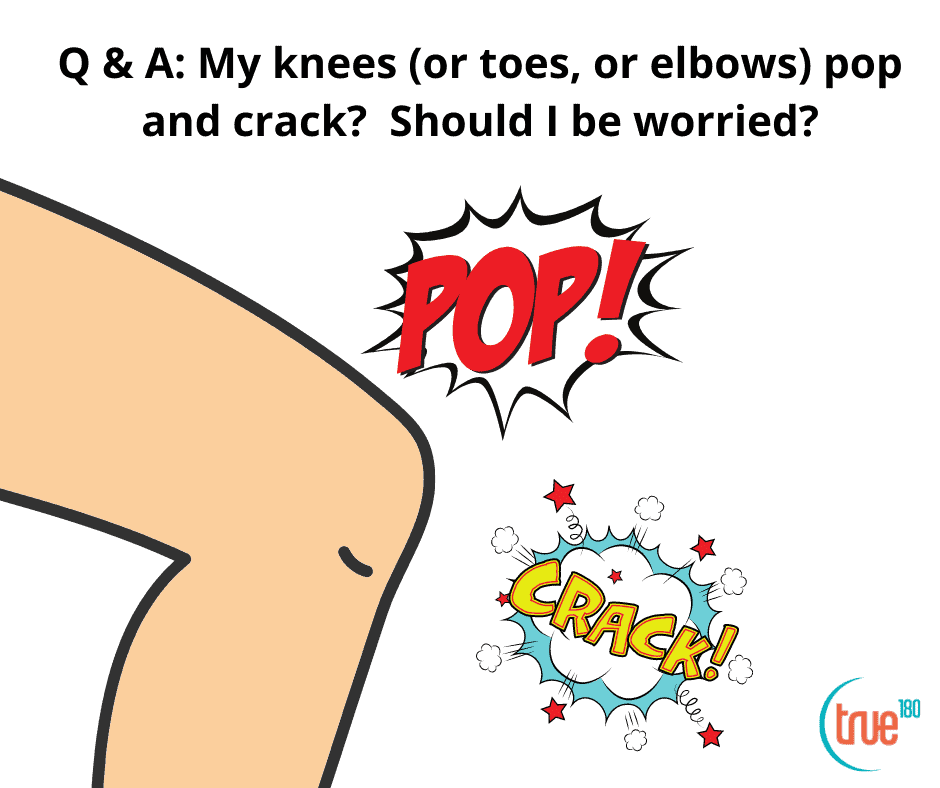Ever wondered if you need to worry when you hear your joints go crackle and pop? If so, keep on reading our latest Q and A.
Q & A: My knees (or toes, or elbows) pop and crack? Should I be worried?
A: The short answer is no. Getting worried about these normal noises our joints make with age would be the same as thinking accumulating grey hair signaled some kind of health disaster.
People’s bodies (joints and backsides) tend to get nosier with age, and when it comes to your joints there are 2 primary reasons:
Popping bubbles: Our joints are lubricated by something called synovial fluid. This fluid gets gas bubbles trapped in it, and these bubbles are released with movement.
Bigger joints will accumulate more gas and pop more than smaller ones. Movement gets the bubbles out, and lack of movement allows the bubbles to accumulate. So working out after sleeping or office work is going to make noise.
Normal aging: Collagen changes with age. We see this every time we look in the mirror because the lines or wrinkles in our faces are a reflection of how our collagen changes over time.
The cartilage in our joints is mostly collagen, and it ages the same way the collagen in our face does. It changes shape. The changes in shape can sometimes make squeaky or other noises. The only way to fix this is with a time machine.
No 60 year old is going to have the collagen of a 20 year old. This is true for our faces, and of how our joints appear in an MRI.
For example: If you are over 60 and do not have back pain, and you ended up getting an MRI of your spine, you have a greater than 90% chance of having “degenerative discs.”
“Our study suggests that imaging findings of degenerative changes such as disk degeneration, disk signal loss, disk height loss, disk protrusion, and facet arthropathy are generally part of the normal aging process rather than pathologic processes requiring intervention.” Source
Should you ever worry?
If you have consistently sharp and agonizing pain, then it’s probably time to be concerned. However, research over the past 40 years has shown that stopping all exercise or avoiding movement will make things worse.
If, on the other hand, you have a twinge here and there that usually goes away, that’s a bit more like grey hair.
Knee Health
Quick aside: Moving the synovial fluid in your joints is extremely important for their health and well-being. Let’s take your knees for example: the cartilage in them does not have its own blood supply, which means that the only place it’s getting nutrition or hydration is from your synovial fluid. This is a process called active diffusion, which is a fancy way of saying that it takes motion, pressure and time to push the nutrients and water into your cartilage. When the knees are deprived of motion (“rested”) the cartilage is starved and dehydrated, and becomes thinner, weaker and more brittle. If it has been injured resting is like pushing pause on the healing process.
Stay moving!

